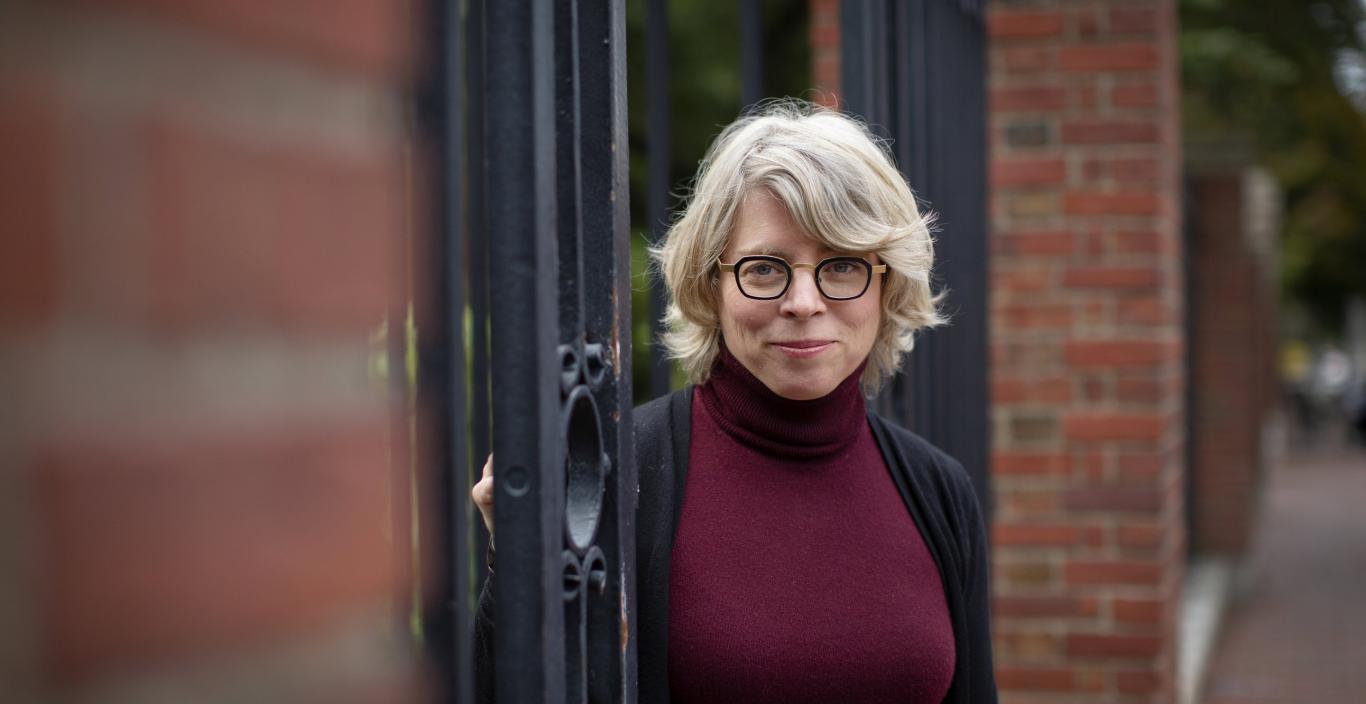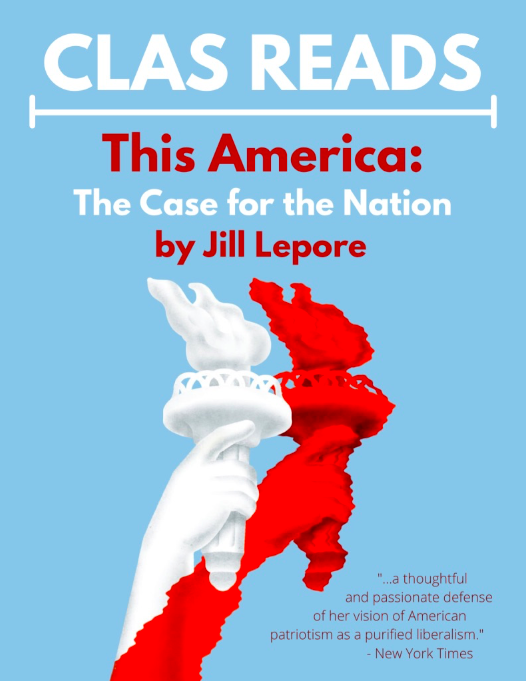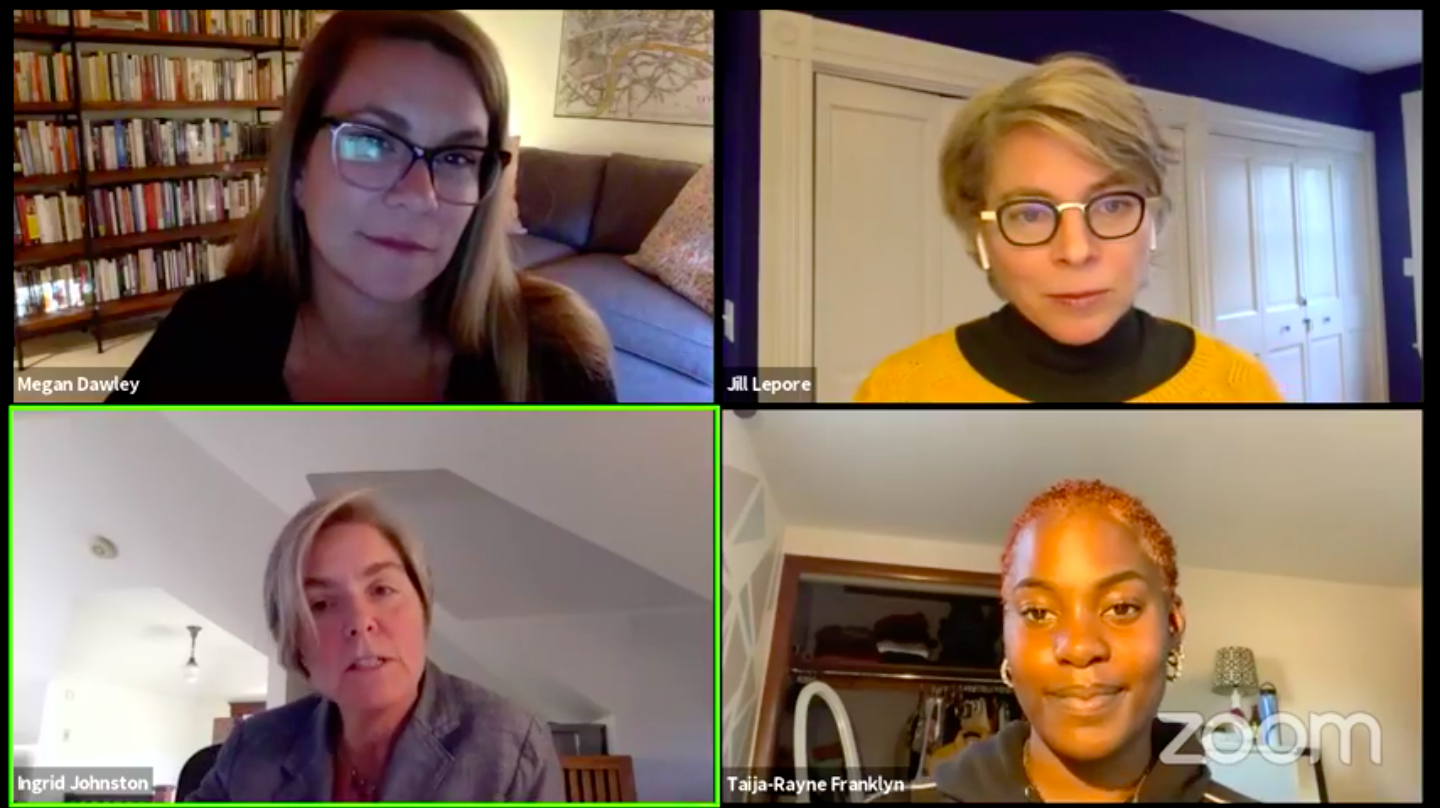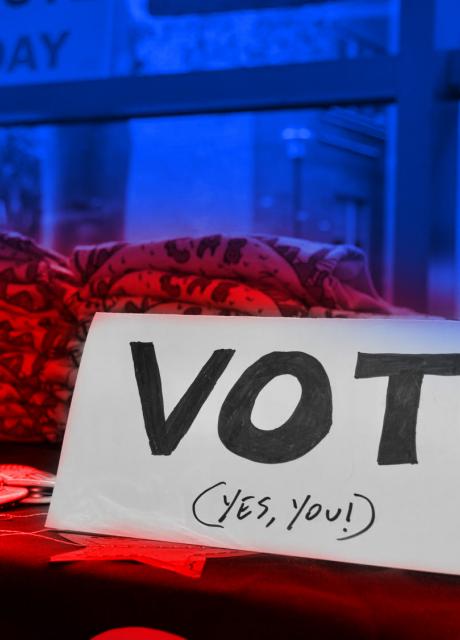Jill Lepore. Image: Stephanie Mitchell/Harvard University
Since before our founding as a nation, America has always been divided by race, class, faith, geography — pretty much any way people can conceive of separating themselves.
Today’s America, in the throes of a resurgence of nationalism, as well as a pandemic, remains divided philosophically but also physically. We hunker down at home or, on those infrequent occasions we venture into public space, we don surgical masks and endeavor to preserve a 6-foot buffer zone at all times.
“This is a really rough time and there’s a lot of reason to be worried about this moment,” said historian Jill Lepore, whose book “This America: The Case for the Nation” was the centerpiece for this year’s CLAS Reads, an annual program for first-year students in our College of Liberal Arts and Sciences (CLAS). In addition, humanities adjunct faculty member Megan McNamara Dawley said she built her syllabus around Lepore’s book.
Lepore, a Harvard professor, Cambridge resident and native of Central Massachusetts, spoke Wednesday via Zoom to several dozen students in an honors class, then in a larger virtual session for the Lesley community and members of the public later in the early evening.
The latter event, largely a slide presentation of art images showing various permutations and interpretations of the divided nation, included a question-and-answer session moderated by Associate Professor Rob Wauhkonen.
In a freewheeling discussion during the honors class, Lepore and students delved into the effects of Trump-era nationalism in general and on how we see ourselves as Americans.
Responding to a student question, Lepore said, “It’s always a bad idea to be blindly patriotic … I spent a lot of time in ‘This America’ trying to draw the distinction between nationalism and patriotism.”
One of the hallmarks of nationalism, she said, is the polarization endemic in the country, with President Donald Trump and his supporters saying their opponents hate America, while his opponents label the president and his supporters as fascists. She called the contemporary political terrain “bizarre and violent” and pointed to plenty of causes for pessimism: violence in the streets, growing anti-immigrant sentiment and racial schisms among them.
“It is really hard to be patriotic – the country is a mess. There are really horrible things being done in our name,” Lepore said. “When liberals stop talking about nationalism, nationalism doesn’t die: nationalism starts eating liberalism.”
And, with COVID-19 still looming over every aspect of life, ”United States” seems like an oxymoron.
“Crossing a state boundary seems more like crossing an international border now,” Lepore said.
But the nation has prevailed over calamity before, or at least made progress.
“I think what the book is trying to suggest is that illiberal nationalism is not a new thing,” Lepore said, citing 19th- and 20th-century racist anti-immigrant policies such as the Chinese Exclusion Act, the expulsion of Mexican-Americans, the imprisonment in detention camps of Japanese-Americans, as well as slavery and the mistreatment, including attempted genocide, of indigenous people.



